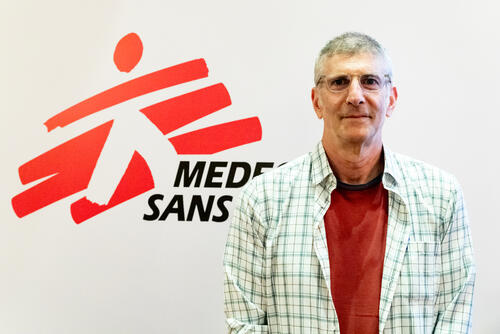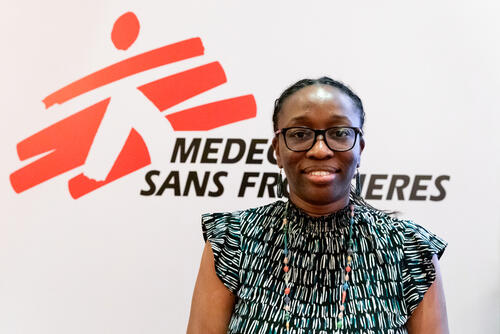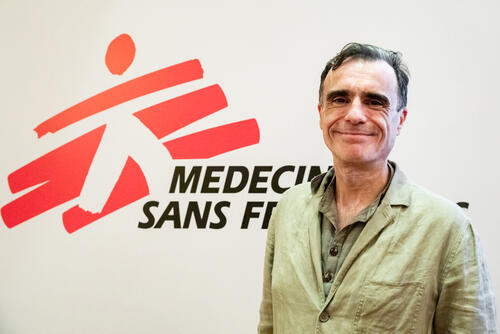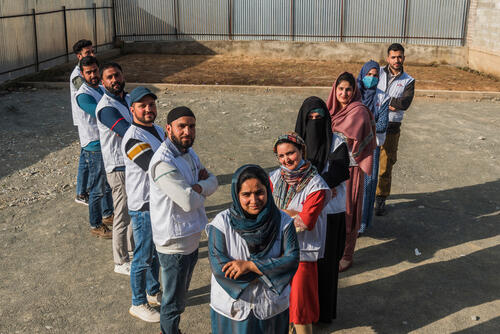We are run by MSF associations, whose members are mostly current and former project staff

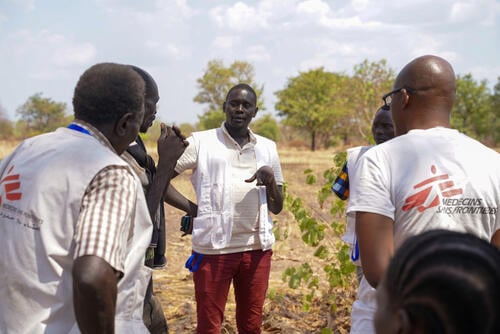
Our members share a commitment to independent medical humanitarian action, and collectively own and manage MSF through national and regional associations.

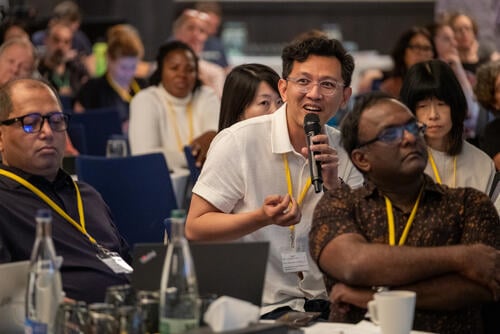
Members engage to defend the values expressed in our Charter. They voice their views on our action and approach, informing and steering MSF’s direction.


Members elect the governing board and president of each association and hold them accountable for their actions.

Associative engagement and participation among MSF staff and members.
The MSF Associations
We are a movement, rooted in our medical operations, which engages MSF staff from all over the world in a shared commitment to medical humanitarian action.
Through MSF associations, members have the right and responsibility to voice their opinions and contribute to the definition and guidance of our social mission. The associations bring together people in formal and informal debates and activities - in our programmes, in general assemblies at national and regional levels, and in an annual international assembly.
Because the people making the decisions are current or former staff, MSF remains relevant to the needs seen in the countries where we work, and focused on medical care and on our core principles: independence, impartiality, and neutrality.
28 MSF Associations
Each of them is an independent legal entity registered in the country where they operate. The associations elect their own board of directors and president during their General Assembly.
The associations are: Australia, Austria, Belgium, Brazil, Canada, Central America & Mexico (CAMEX), Democratic Republic of Congo, Denmark, East Africa, France, Germany, Greece, Hong Kong, Japan, Italy, Korea, Latin America, Luxembourg, Netherlands, Norway, South Asia, Southern Africa, Spain, Sweden, Switzerland, United Kingdom, USA, and West and Central Africa.
Our offices around the world
The MSF associations are linked to six Operational Directorates who directly manage our humanitarian action in the field and decide when, where, and what medical care is needed.
MSF sections are offices that support our field work. They mainly recruit staff, organise fundraising, and raise awareness on the humanitarian crises our teams are witnessing. Each MSF section is linked to an association which defines the strategic direction of the section, and holds the section accountable for its work.
Some MSF sections have opened branch offices to extend this support work further. Currently there are 24 sections and 18 branch offices around the world.
Additional satellite offices exist to support our work, mainly for logistics, supply and epidemiology.
MSF International
All 28 MSF associations, as well as individuals and the International President, are members of MSF International, the association that safeguards the identity of the MSF movement.
The highest authority of MSF International, the annual International General Assembly (IGA) is made up of representatives of each association as well as of individual membership, and the International President. The International President, who is currently Dr Javid Abdelmoneim, is elected by the IGA. Representatives, and the International President, votes on issues brought to the assembly for resolution.
The IGA is responsible for safeguarding MSF’s medical humanitarian mission, and provides strategic orientation to all MSF entities. It delegates duties to the International Board, and holds the board accountable for those tasks.
MSF International's executive office - called the International Office - provides coordination, information and support to the MSF movement, and implements international projects and initiatives as requested. Its costs are paid by MSF’s national executive offices. Christopher Lockyear is the current Secretary General of MSF International. MSF International is registered in Switzerland.
Learn about the International Office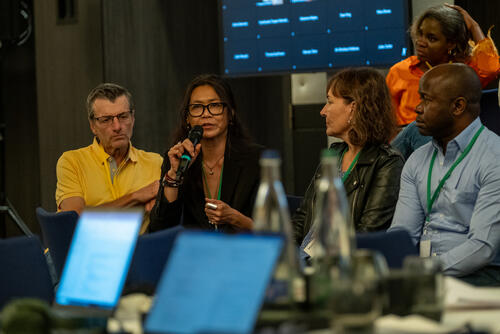
The International President
The International President of Médecins Sans Frontières (MSF) chairs the International Board and the International General Assembly, and represents MSF International externally.
The International President is elected by the International General Assembly. They must have a medical background. They cannot hold an executive position or sit on the board of another MSF association. The International President can serve a maximum of two three-year terms. Dr Javid Abdelmoneim was elected as the International President of Médecins Sans Frontières, taking up his post in September 2025. He succeeds Dr Christos Christou, who was International President for two terms, from September 2019.

International President
Dr Mohamed Javid Abdelmoneim is a Sudanese Iranian emergency medicine doctor, with extensive experience in both the United Kingdom’s National Health Service and with MSF. Born in Cambridge, UK, he graduated with a degree in medicine from University College London, holds a diploma from the London School of Hygiene and Tropical Medicine, and is a Fellow of the Royal College of Physicians. Having joined MSF in September 2009 as an emergency doctor in Basra, Iraq, Dr Abdelmoneim has worked in medical and programme coordination roles since then in Haiti, Ethiopia, South Sudan, Syria, Chad, Ukraine, UK, in Mediterranean search and rescue, and in Sierra Leone during the West Africa Ebola epidemic. His most recent roles with MSF have been as medical team leader in Gaza, Palestine, and as medical team leader in Omdurman, Sudan, until February 2025. Dr Abdelmoneim served on the board of MSF UK from May 2015 and was appointed its president in 2017, a role he held until 2021. Outside of medical roles and his time with MSF, he is also an experienced television presenter, having been nominated for both Emmy and BAFTA awards for his work on science documentary and health entertainment series which have appeared on Netflix, BBC, HBO, Channel 4, and Al Jazeera English. Dr Abdelmoneim was elected as International President for a three-year term by MSF’s International General Assembly, held in Colombo, Sri Lanka, on 27 June 2025. He took up his role on 3 September 2025.
The International Board
The International Board (IB) is the board of MSF International. It acts on behalf of and is accountable to the International General Assembly (IGA). As the highest associative governance body of MSF, the IGA delegates duties to the Board, as defined in the Statutes of the association.
The International Board (IB) is intended to have mainly a guiding role, ensuring accountability and facilitating agreement within the MSF movement in a timely manner.
The IB is composed of: the International President; one representative for each operational centres; six additional people elected by the IGA. Two-thirds of IB members must have a medical background. Additional non-voting members, such as a treasurer, can be co-opted by the IB depending on its needs.
The members of the International Board, in addition to the International President, are:

Dr Oscar Bernal grew up and studied medicine in Colombia and has doctorate in public health from Spain. He has worked with MSF for more than 28 years in more than 20 countries, including Angola as a field doctor/surgeon, in Liberia (1995) as medical coordinator, Sudan (1996) as head of mission, Russia (1997) as project coordinator, and Guatemala (1999), Bolivia (2001), Indonesia (2007), and Colombia (2009) as a medical coordinator. Oscar also worked as a technical adviser on infectious diseases from 2003 to 2009. He has participated in several MSF associations, including MSF France and MSF Spain, and was involved in the creation and development of MSF Latin America. He works as a professor and MPH coordinator in the University of Andes, Colombia. Oscar was elected to the International Board in 2023.

Sam Bumicho has a diploma in Clinical Medicine & Surgery. After completing his medical internship at Kenyatta National Referral hospital in Nairobi in 2004, Sam started working with MSF in Kenya, first as a Project Coordinator Assistant in Mbagathi district hospital, Nairobi and later on as a clinical officer and HIV/TB contact clinician in Kibera. After he left MSF in 2016, Sam started working with Amref Health Africa. He is currently County Coordinator of Amref Health Africa’s project in the county of Tana River, Kenya.










